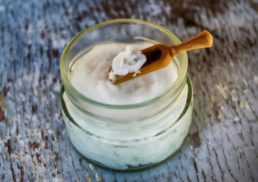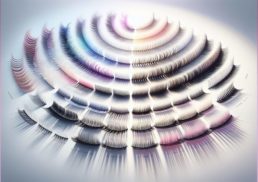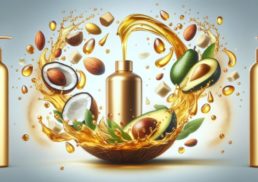The quest for youthful, radiant skin has led to an ever-growing interest in the power of peptides. These small molecules, derived from various sources, hold great potential in improving skin health and combating the effects of aging. In this blog post, we will take a deep dive into the world of peptides, discussing their diverse origins, potential benefits, and the latest research on their role in promoting healthy, beautiful skin.
Table of Contents
Short Summary
Peptides are naturally occurring short sequences of amino acids with numerous beneficial effects for skin health.
Synthetic peptides and collagen peptides can be used to promote hydration, elasticity, and reduce the signs of aging.
Potential side effects should be considered before use. Consulting a healthcare professional is advised.
The Power of Peptides: An Overview
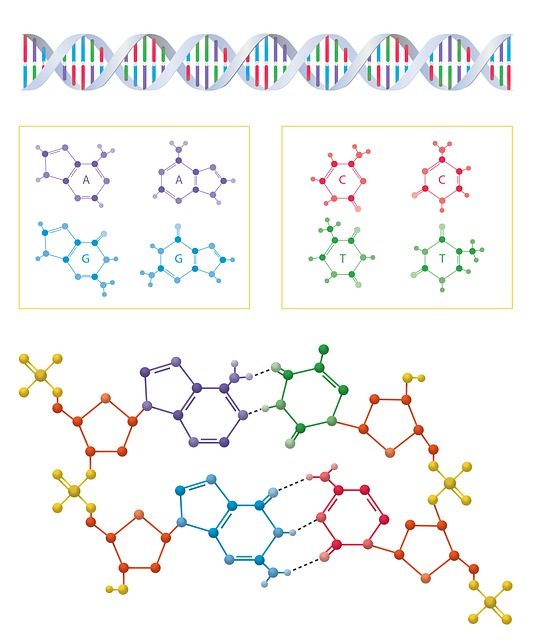
Peptides are short chains of amino acids, the building blocks of proteins, and play a crucial role in various physiological processes within the human body. They are formed by peptide bonds, which link these amino acids together. Peptides can be classified into three main types: biologically active peptides, synthetic peptides, and food-derived bioactive peptides. These versatile molecules have potential therapeutic applications, including promoting healthy skin.
In this section, we will explore the different types of peptides and their unique properties that make them indispensable for maintaining healthy skin.
Biologically Active Peptides
Biologically active peptides are naturally occurring short sequences of amino acids that can have a wide range of functions within the body. These peptides often serve as signaling molecules, modulating various cellular processes and playing a crucial role in human health.
Research has shown that bioactive peptides can exhibit numerous beneficial effects, such as reducing blood pressure, fighting infections, and even improving the body’s response to inflammation. These diverse functions make biologically active peptides instrumental in promoting healthy skin.
Synthetic Peptides
Synthetic peptides are artificially created chains of amino acids that mimic the structure and function of their naturally occurring counterparts. These lab-manufactured peptides can be designed to possess specific properties and functions, making them invaluable tools in research and medicine. Synthetic peptides have been employed in drug discovery, epitope mapping, and as therapeutic agents for various diseases, such as cancer.
In the realm of skin health, synthetic bioactive peptides can be administered topically to promote healthy skin and support wound healing.
Solid Phase Peptide Synthesis
Solid Phase Peptide Synthesis (SPPS) is a chemical technique used to synthesize peptides and proteins in a controlled environment. This method involves coupling reactions on a solid support, which allows for efficient and controlled synthesis of peptides that contribute to healthy skin. SPPS offers several advantages over other peptide synthesis techniques, such as increased efficiency, better control of the synthesis process, and the ability to synthesize larger peptides.
However, potential side effects and precautions should be considered when utilizing SPPS, including the possibility of contamination and the requirement of specialized equipment.
Peptides and Skin Health
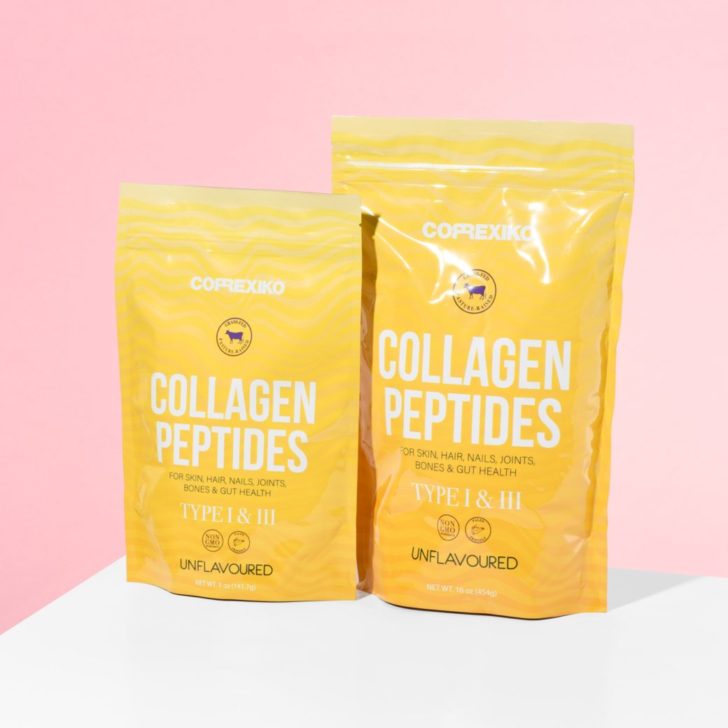
Peptides have the potential to significantly improve skin health through various mechanisms, such as collagen production, antimicrobial properties, and therapeutic applications. In this section, we will delve deeper into these mechanisms and the specific peptides involved in promoting skin health.
Collagen peptides are a type of peptide that can help to increase collagen production in the skin, which can help to reduce wrinkles and improve skin elasticity.
Collagen Peptides
Collagen peptides are small pieces of protein derived from animal collagen, which is found in cartilage, bone, and skin. They are often used for their potential benefits in promoting healthy hair, nails, skin, bones, and joints. Collagen peptides are easily digestible and may assist in replenishing lost collagen in the body, contributing to healthy skin.
These peptides have been shown to enhance skin firmness, elasticity, and hydration, thereby diminishing the visibility of wrinkles and promoting healthy skin.
For more info, please visit Benefits of Taking Collagen Supplements
Antimicrobial Peptides
Antimicrobial peptides are substances that help combat infections and may have potential uses in managing skin conditions. These peptides serve as a first-line defense against infection and are essential for maintaining healthy skin.
A critical subset of antimicrobial peptides, defensins and cathelicidins, can be modified post-translationally to combat a variety of infections, contributing to healthy skin. Antimicrobial peptides synthesized in the epithelium can also be modified to combat a variety of infections, further supporting skin health.
Peptide Therapeutics
Peptide therapeutics are peptides or polypeptides used for the treatment of various diseases, including skin conditions like psoriasis, eczema, and acne. These peptides have made considerable advances in drug development and have been employed for a broad range of ailments, offering potential benefits for skin health.
While peptide therapeutics can be classified into injectable and oral forms, potential side effects and precautions to consider include allergic reactions and possible interactions with other medications.
Peptides for Anti-Aging
As the search for effective anti-aging solutions continues, peptides have emerged as promising candidates due to their ability to regulate skin pigmentation, improve elasticity, and retain moisture.
In this section, we will explore the specific ways in which peptides can slow down the aging process and contribute to a more youthful appearance.
Skin Pigment Regulation
Skin pigment regulation is a critical aspect of maintaining a youthful appearance, as it helps minimize the visibility of age spots and other discolorations. Peptides, such as those found in certain skincare products, can stimulate melanin production, leading to a more even skin tone and reduced wrinkles.
Understanding the mechanisms behind skin pigment regulation is essential for determining the potential effects of peptides on skin health.
Improved Skin Elasticity
Peptides contribute to skin elasticity by forming elastin fibers, resulting in firmer skin and a more youthful appearance. They have been demonstrated to stimulate the synthesis of elastin fibers, which help maintain skin’s firmness and tautness.
By improving skin elasticity, peptides can potentially reduce the visibility of wrinkles and fine lines, as well as improve skin tone and texture.
Hydration and Moisture Retention
Proper hydration and moisture retention are vital for maintaining a youthful appearance, as they help to keep the skin looking plump and healthy. Peptides facilitate moisture retention by stimulating the production of hyaluronic acid, a compound that aids in maintaining skin hydration.
By promoting hydration and moisture retention, peptides can help keep the skin looking youthful and radiant.
Food-Derived Bioactive Peptides
Food-derived bioactive peptides are another source of peptides that can have potential benefits for skin health. These peptides can be sourced from various amino acids and have been shown to improve skin elasticity, hydration, and moisture retention, as well as regulate skin pigmentation.
In this section, we will explore the different sources of food-derived bioactive peptides and their potential impact on skin health.
Amino Acid Sources
Amino acid sources for bioactive peptides include both animal and plant proteins, which can be broken down into their constituent peptides. Examples of animal protein sources include red meat, chicken, fish, seafood, eggs, milk, cheese, and yogurt, while plant protein sources include peas, chickpeas, lentils, soybeans, peanuts, cooked kidney beans, black beans, garbanzo beans, edamame, quinoa, and chia seeds.
The breakdown of these proteins into smaller peptides is facilitated by enzymes in the digestive system, allowing the peptides to be absorbed into the bloodstream and utilized by the body for various purposes.
D-Amino Acids
D-amino acids are a type of amino acid that can be found in certain peptides and have potential skin benefits. They are the enantiomers of the more common L-amino acids, which have the same chemical composition but differ in their spatial arrangement. Studies have shown that D-amino acids can serve as components of opioid peptides, neurotransmitters, and in microbial physiology, among other biological processes.
One example of D-amino acids includes D-alanine and D-glutamic acid.
Human Skin Physiology
Understanding human skin physiology is essential for determining the potential effects of food-derived peptides on skin health. Human skin is the largest organ of the body, representing approximately 15% of the total adult body weight, and provides a protective barrier against heat, light, injury, and infection. The skin is composed of three distinct layers: the epidermis, dermis, and hypodermis, each with its own unique functions and structures.
By understanding the intricacies of skin physiology, we can better determine the effects of food-derived peptides on skin health and appearance.
Peptide Hormones and Their Role in Skin Health
Peptide hormones play a significant role in skin health, as they influence various processes within the body that can impact the appearance and health of the skin. In this section, we will discuss some of the key peptide hormones, including oxytocin, ADH, insulin, and glucagon.
Additionally, two amino acid hormones and their roles in skin health will be discussed.
Oxytocin, ADH, Insulin, and Glucagon
Oxytocin, ADH, insulin, and glucagon are peptide hormones with various functions that can impact skin health. Oxytocin contributes to social bonding, sexual reproduction, childbirth, and the regulation of the body’s stress response.
ADH plays a role in helping the body regulate its water balance, acting on the kidneys to facilitate water retention. Insulin facilitates glucose uptake from the blood and the storage of glucose as glycogen in the liver.
Glucagon acts on the liver to facilitate the breakdown of stored glycogen into glucose, thereby aiding in the regulation of blood sugar levels.
Two Amino Acids Hormones
Two amino acid hormones, such as thyrotropin-releasing hormone, can also impact skin health. These hormones are involved in controlling the production of collagen, elastin, and other proteins essential for skin health, as well as regulating skin pigmentation and increasing skin elasticity.
It is important to consider the potential side effects and precautions associated with two amino acid hormones, which may include skin irritation, redness, and dryness.
Cellular Processes and Peptide Hormones
Peptide hormones influence cellular processes that can affect skin health and appearance. They act as messengers when released by cells in response to a stimulus, binding to receptors on the cell surface and activating or inhibiting certain pathways. This can lead to changes in gene expression, protein synthesis, and other cellular activities.
By affecting cellular processes such as collagen production, cell signaling, and inflammation, peptide hormones can impact skin health and appearance, including the production of sebum, which can lead to changes in skin hydration and moisture retention.
Potential Side Effects and Precautions
Although peptides generally have minimal side effects, it is essential to exercise caution when using peptide-based products, particularly for those with allergies or sensitivities. Using peptide-containing topical creams and ointments may lead to skin problems. These may include sensitivity, rash, and itching.
It is always advisable to consult a healthcare professional before taking peptide supplements or using topical products that contain peptides, as they may interact with other medications and result in adverse reactions.
Summary
In conclusion, peptides hold great promise in the realm of skin health and anti-aging. Through their various origins, functions, and applications, peptides have the potential to improve skin elasticity, hydration, and moisture retention, as well as regulate skin pigmentation. As research continues to advance, we can look forward to a future where peptides play an even more significant role in promoting healthy, youthful skin.
Frequently Asked Questions
What are peptides used for?
Peptides are used in dietary supplements to promote muscle growth and maintenance, healthy skin and anti-aging, and weight-loss potential. They are found in health and cosmetic products and often come in the form of pills or protein shakes.
However, the scientific evidence on the benefits of peptides is still early.
Are peptides steroids?
Peptides are derived from amino acids, while steroids are derived from lipids or fats, and peptide hormones have a shorter lifespan than steroid hormones.
Therefore, peptides and steroids are not the same.
Are peptides better than protein?
Peptides may not offer the same diverse range of functions as proteins, but they are still indispensable for biological functions and are easier for the body to absorb and use. Furthermore, peptides can penetrate the skin and intestines more easily than proteins, allowing them to enter the bloodstream quickly and efficiently. As such, peptides can be a beneficial alternative to protein.



